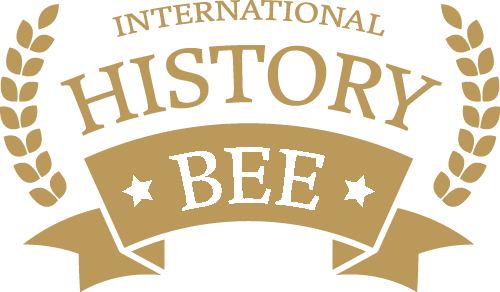The International History Bee
The International History Bee is a buzzer-based history quiz competition for individual students. Please see below for a comprehensive account of how the Bee works. If you have any further questions, please email our Director of Canadian Operations, Jay Wickliff, at jay@iacompetitions.com.

Eligibility
In order to compete in the History Bee, you must be 19 years or younger at the time of your Regional Bee. You must also be enrolled in a primary or secondary school at the time of your regional tournament (or have graduated within the past two months, and not yet have started university studies). We offer four different divisions, which are listed here.
There is no limit on types of schools – local, international, public, private, religious, and schools abroad following a home country curriculum are all welcome. Students are allowed to compete at one Regional History Bee in Canada. Students do not have to compete in the province their school is in; there is no geographic limit in that sense.
Tournament Format
At all History Bee Regionals, in the Junior Varsity and Varsity divisions, there are three preliminary rounds of 30 questions each. In the Middle school and Elementary divisions, these rounds have 25 questions. In each round, you’ll be in a room with 5-10 students. Depending on how many students are competing, the 3 to 10 highest scorers from the combined preliminary rounds in each division then compete in the final rounds (we will announce how many students will make the finals in each division during the Opening Meeting). The four divisions are kept entirely separate unless we don’t have enough students in one division, in which case we can put divisions together at our discretion. Each round takes about 20-30 minutes to complete, including the finals.
Game Format
Students each have a buzzer and attempt to be the first student to ring in and answer correctly. Students may ring in at any point in the question – they are encouraged to interrupt the moderator to do so. After they ring in, they give their answer. If they are correct, they get a point. If incorrect, they cannot buzz again on the question. Three incorrect answers given will end the question, at which point the moderator reveals the answer. They do not normally lose a point if they are incorrect except if they are the third student to answer incorrectly before the end of the question, in which case, they do lose a point (so it is possible, conceivably to have a negative score). If the question has been read to completion, three incorrect answers will still end the question, but no penalty will be assessed.
Once a student has reached 8 points, that student is done for that round. But students receive bonus points based on how early they reach 8 points. The following table summarizes the bonus structure:
On mobile, swipe right to view table contents
| Reaching 8 pts on or before question: | Results in this many bonus pts: | And thus this many total pts: |
|---|---|---|
| Eight | Seven | Fifteen |
| Ten | Six | Fourteen |
| Twelve | Five | Thirteen |
| Fifteen | Four | Twelve |
| Twenty | Three | Eleven |
| Twenty-Five | Two | Ten |
| Thirty | One | Nine |
Since there are 30 or 25 questions in a round, it is thus impossible to finish the round with a score of eight points exactly.
Students are grouped into different groups for each of the three rounds. After all three rounds, the scores from all rounds are added up, and the top students advance to the finals.
Final Round Structure
The format of the finals can vary from tournament to tournament. It will always be made clear to the competing students how it will work in advance, and the number of students who make the finals will be made clear during the Opening Meeting of the History Bee before the preliminary rounds begin.
Question Styles
In the History Bee, all questions are “pyramidal” tossups, where we start with more obscure information and move to more familiar information. Questions cover the history of the arts, sciences, religion, philosophy, languages, historical geography, recent history and the history of sports and entertainment in addition to the usual social, political, and military history. In the final rounds, the questions are on average slightly longer and more difficult.
Resources for Training
The IHBB Canada Study Guide contains both a list of topics that can be referenced in our tournaments and some strategies for preparation.
Past questions used at our tournaments in Canada are quite possibly your best resource for practicing. We use new questions each year, but the people, places, and events in history that are referenced in questions from one year to the next are usually quite similar.
Please also see NAQT’s (National Academic Quiz Tournaments) “You gotta know” pages.
